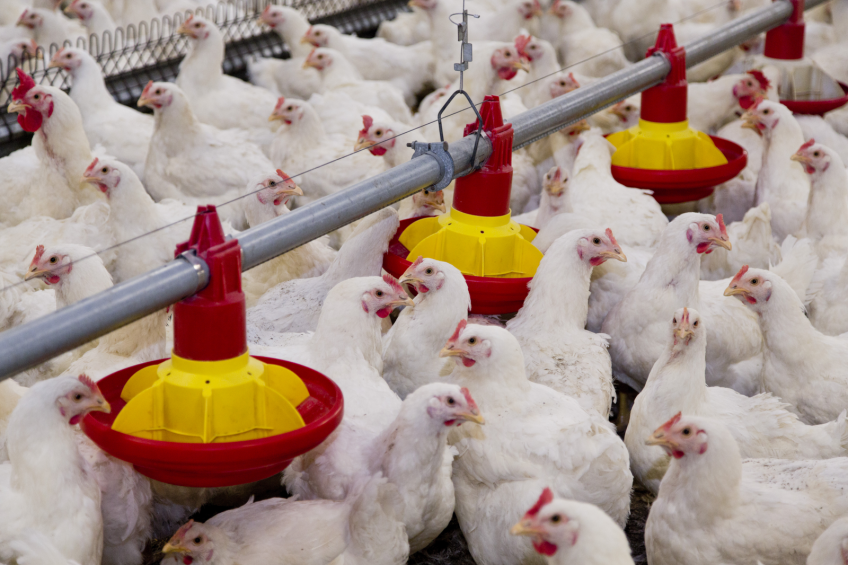Bacteria identified with link to lameness in broilers

Researchers at the University of Arkansas have identified a species of bacteria that had never before been associated with lameness in broiler chickens, bringing scientists closer to finding a way to prevent infections.
Using genetic tools and chickens raised on wire flooring, the research team determined the bacterium Staphylococcus agnetis is significantly involved with a condition leading to lameness in those broiler chickens, said Douglas Rhoads, University Professor of biological sciences and director of the Cell and Molecular Biology interdisciplinary graduate program at the U of A.
Cost of lameness in broilers
The bacteria had been associated with inflammation of the mammary gland in cattle but not in the legs of broiler chickens. Lameness causes the chickens to suffer and the diseased birds are not fit for human consumption. Rough estimates are that lameness in the Arkansas poultry industry could cost growers about $20 million a year due the loss of birds, Rhoads said.
“Lameness in broiler chickens is a significant animal welfare and financial issue,” Rhoads said. “This is the first report of this poorly described pathogen in chickens.”
Wire flooring a factor
Bob Wideman, professor of poultry science at the U of A, had shown that growing young broilers on wire flooring is a contributing factor to lameness in broiler chickens. This study, which included Wideman, shows that S. agnetis is also a contributing factor for lameness in those chickens, Rhoads said.
The study arose from the doctoral dissertation work of Adnan A. K. Al-Rubaye, now an instructor and associate director of the Cell and Molecular Biology graduate program, with contributions from Sohita Ojha, a doctoral student in the program; and Joseph Koon, an undergraduate student at Ouachita Baptist University.
Genome assembly for the study was performed at the Arkansas High Performance Computing Center and the High Performance Computing Center at Oklahoma State University. Jeff Pummill at the Arkansas High Performing Computer Center and Brian Couger at Oklahoma State University were co-authors.
The National Institutes of Health and Arkansas Biosciences Institute partially funded the study and the team published its findings in PLOS ONE.












